By Adam Pagnucco.
Confronted with overwhelming evidence of a collapse in multifamily housing production after passage of the county’s new rent control law, Council Member Kristin Mink – one of the law’s strongest champions – now says she knew that development would decline all along.
Really?
Mink made her remarks last Tuesday during Park and Planning’s presentation of its semi-annual report to the council. Here is what she said.
*****
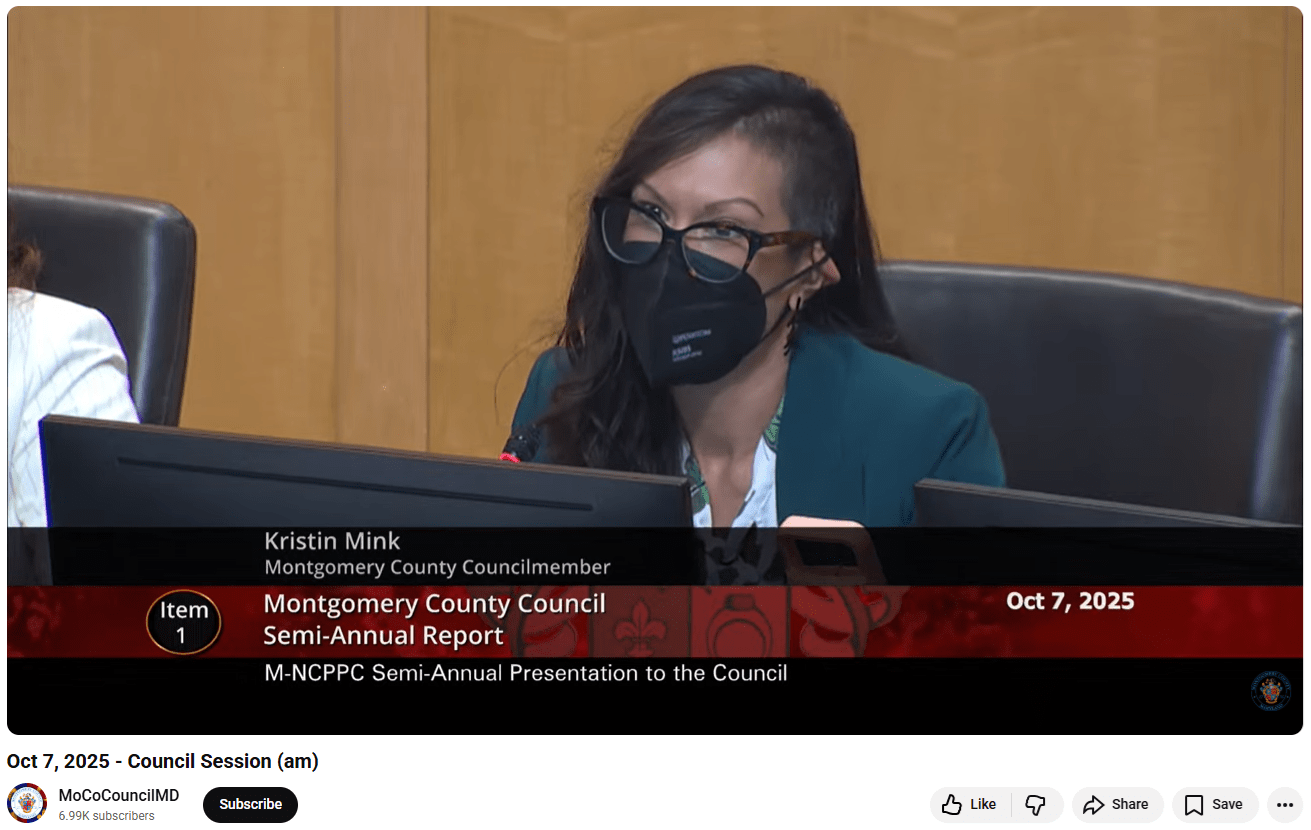
Council Member Kristin Mink.
I did want to note on the development side, just important to note that when rent stabilization was passed that one of the things that we knew at the time, a pattern that has been seen that we were aware of is a temporary drop in the development as developers evaluate the market conditions. Understandably, some paused development and simultaneously lobbied for the law to be rolled back or watered down and then over a period of time they’d return or others take advantage of the opportunity to move into the market space. So really important to keep an eye on it, of course, but it’s also been a very short period of time and that has been an effect that has been seen in other places. So a market impact was expected and that’s of course before the other factors that you mentioned which are also important to keep in mind, also the federal instability, the tariffs, job losses, associated potential population shifts out of the area as a result of that, which we’re seeing reflected of course in other markets around the area as well. So I just wanted to be very careful not to assign causation especially beyond a temporary status… we don’t know yet what that’s going to look like in the longer term and especially when that’s legislation that is having such a tangible impact on the quality of life, on the safety and wellbeing of our residents.
*****
So Mink now claims that she knew development would drop after rent control. But on July 18, 2023, on the day of the vote on the rent control bill, she wrote a memo to her colleagues in which she flat-out said that “rent stabilization will not negatively impact development.” Page one of the memo in which she makes her claim is reprinted below.
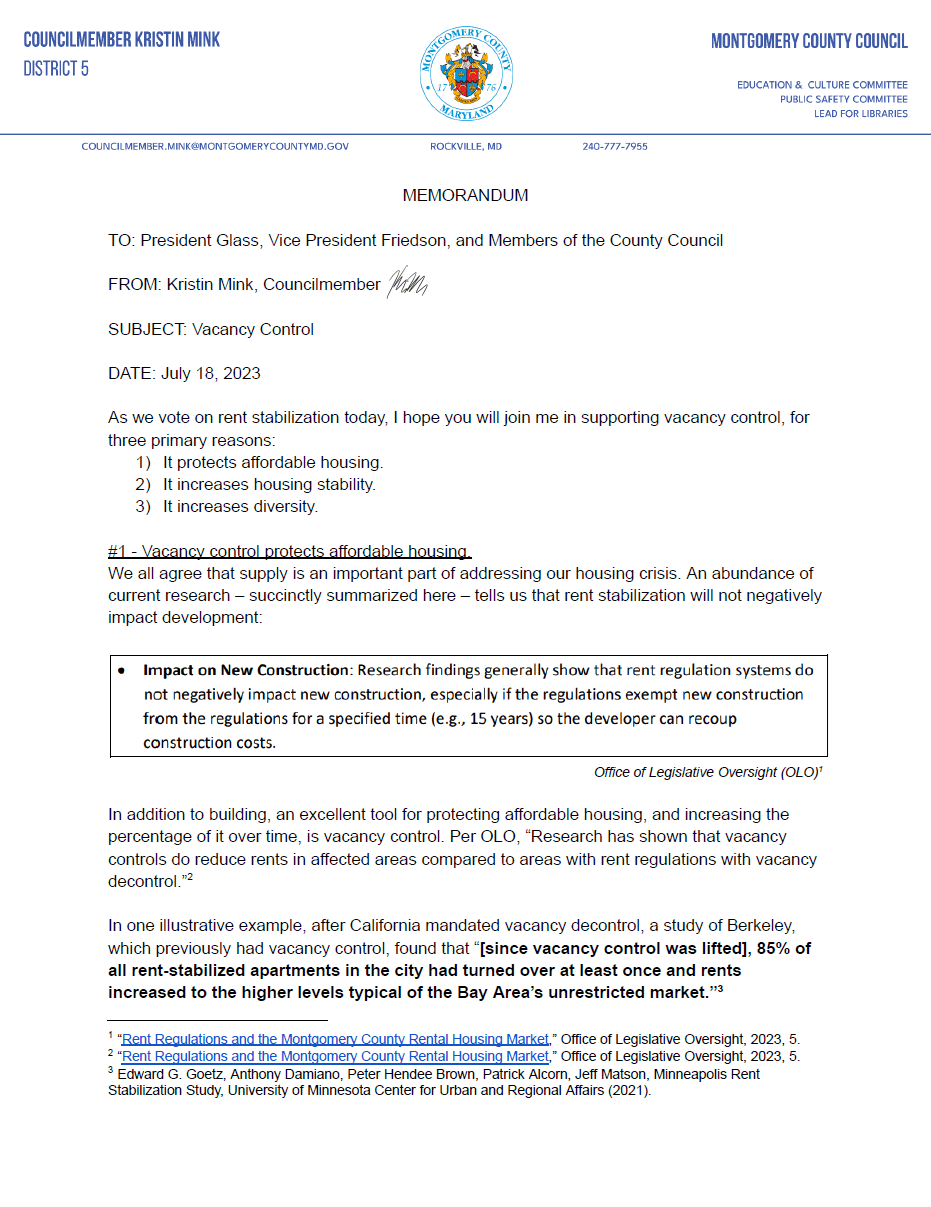
Mink also co-signed a March 7, 2025 letter that stated, “Research consistently shows that rent stabilization laws, including ones with vacancy control, do not stymie development.” Other signers included Council Members Will Jawando, Natali Fani-Gonzalez, Kate Stewart and Laurie-Anne Sayles – all of whom voted for the rent control law; County Executive Marc Elrich, who supported it; and Rockville City Council Member Izola Shaw, who has advocated for rent control in Rockville and is now running for county council. All of these elected officials went on the record just seven months ago that rent control laws “do not stymie development.”
Mink is trying to rewrite history. It’s not the first time. This is the person who deleted more than 10,000 of her own tweets, after all. Mink admitted the mass deletion to Bethesda Magazine, justifying it because of digging by Fox News.
So what has changed? A growing body of evidence now shows that rent control is an obstacle to housing production in Montgomery County. Developers began shifting operations out of the county even before the law was passed. Apartment building transactions have plummeted. National real estate financiers have redlined MoCo as a no-go zone for project financing, a fact confirmed by local developers. And those factors have shown up in an all-out collapse in multi-family building permits for the last three straight quarters (Q4 in 2024 through Q2 in 2025) that makes MoCo an outlier in the region.
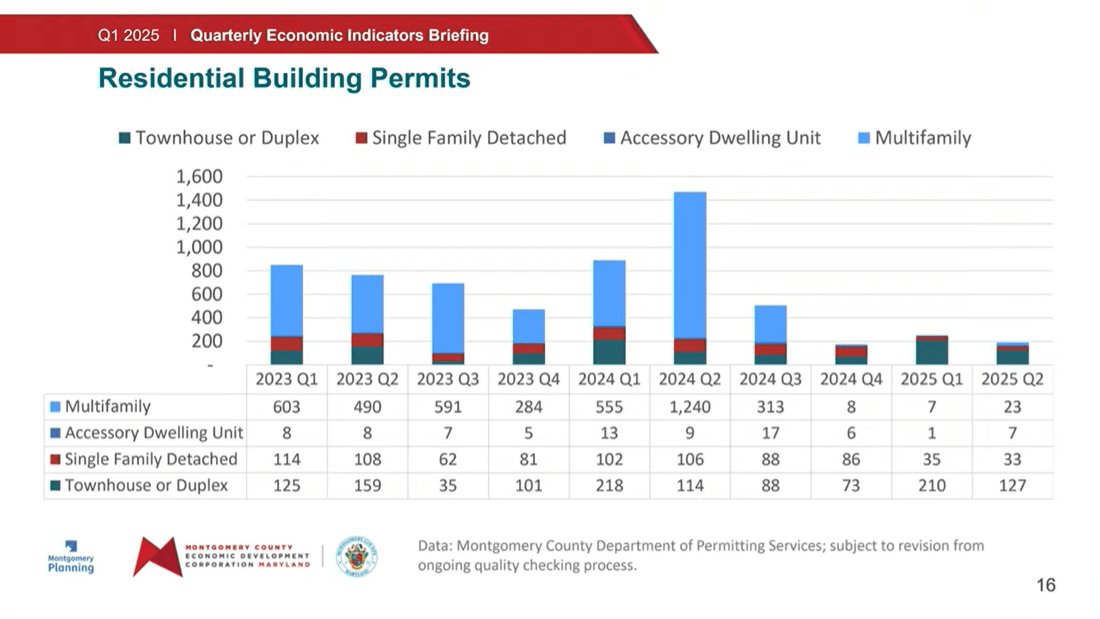
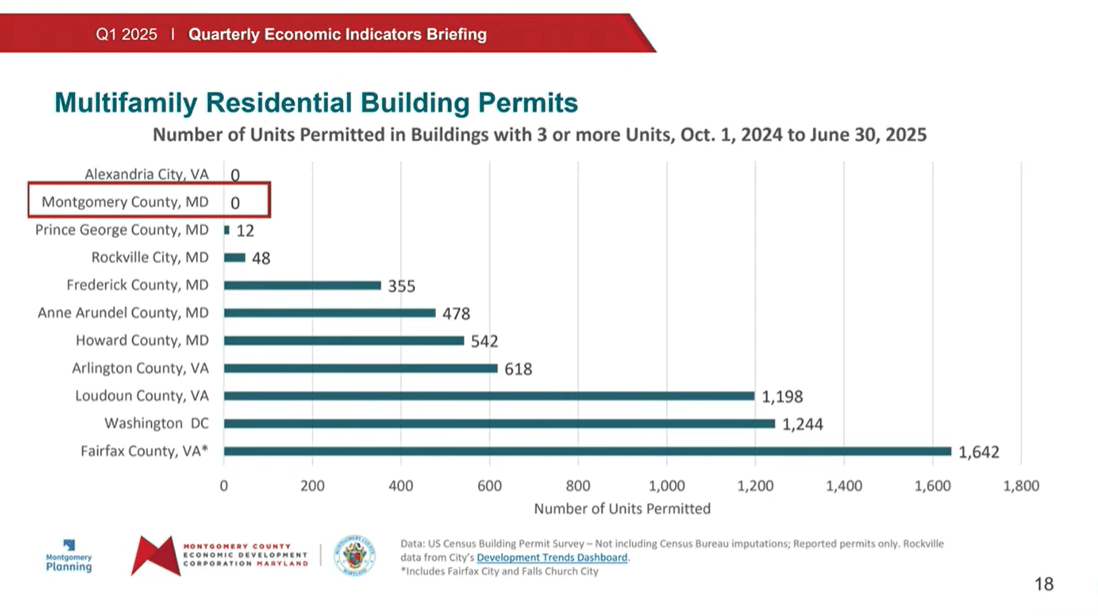
Damning evidence: the two slides from the county’s Planning Department contrasting MoCo’s multi-family housing collapse to other large jurisdictions in our region.
Mink is right about one thing: there was a huge amount of evidence that rent control was bad for housing production at the time that the county passed its law. Decades of economic literature has chronicled its ill effects on housing. Takoma Park, which passed rent control decades ago, has been losing rental housing units for years according to a report commissioned by the city government. Montgomery County abandoned rent control in 1981 after seeing mass conversions of rental units into condos. St. Paul, Minnesota passed rent control a year before MoCo did and saw an immediate collapse in housing production. And two economic impact statements on different MoCo rent control bills both predicted they would damage the county’s economy.
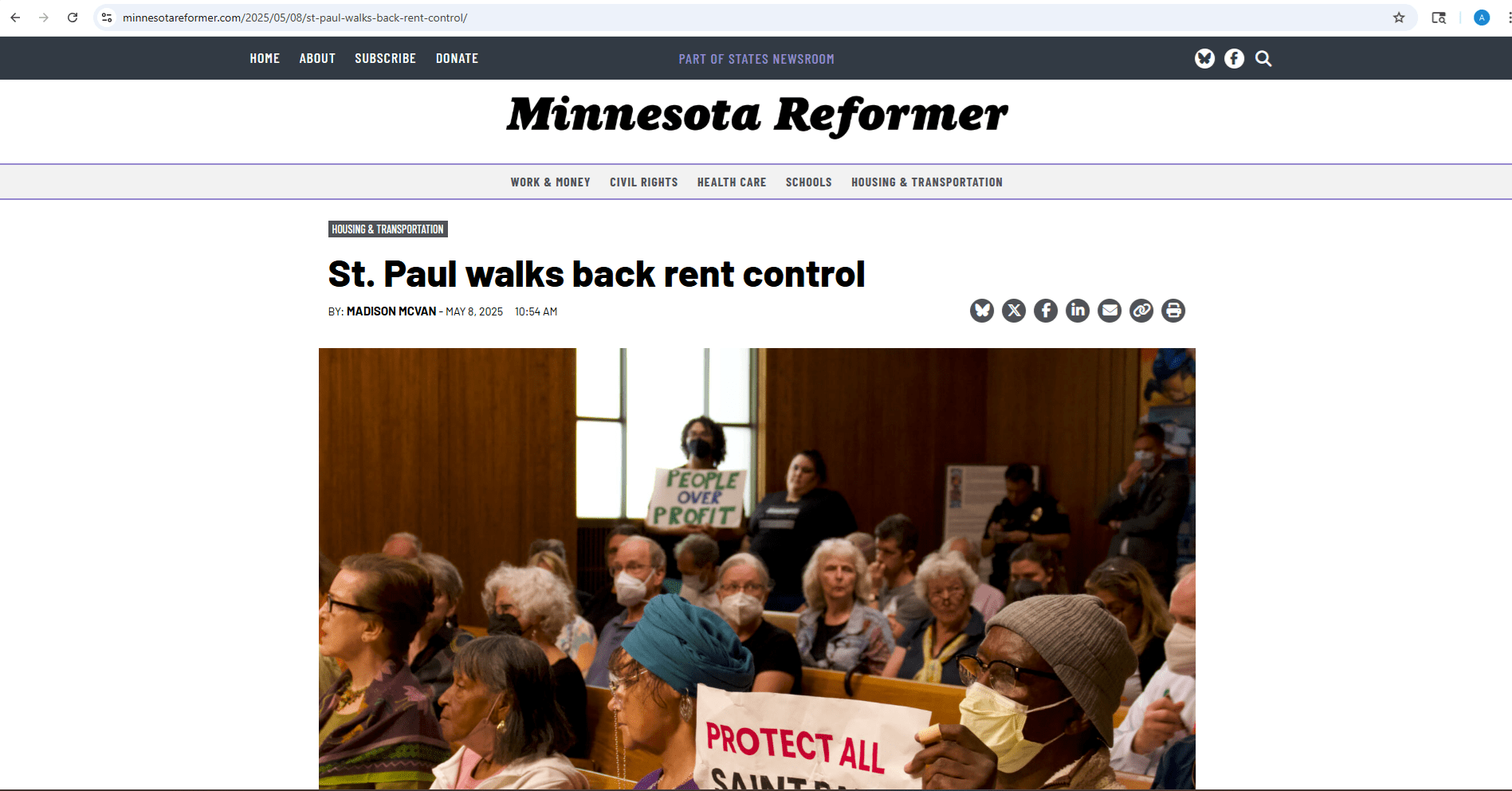
This headline says it all: St. Paul walks back rent control.
But even though the evidence was out there, rent control advocates ignored it and made extravagant promises about the law’s impact instead. And as we can see above, Mink and others plainly stated that it would not “stymie development.” Now she says they knew development would decline all along.
Let’s dispense with historical revisionism. If intellectual honesty is to be observed – and I get that such a commodity is in short supply in today’s era of malignant politics – then it’s time for county leaders to pick a position.
You can support the county’s rent control law in its current form or:
You can advocate for a significant increase in housing supply.
Pick one, because you can’t be intellectually honest and have both.
